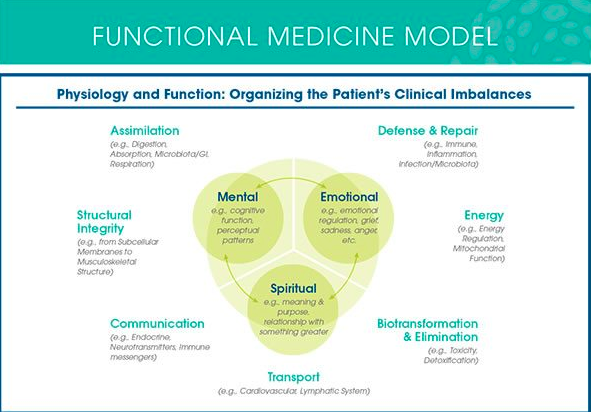What Is The Difference Between The Functional Medicine & Conventional Medicine Model?
“Functional Medicine is the future of conventional medicine–available now. It seeks to identify and address the root causes of disease and views the body as one integrated system, not a collection of independent organs divided up by medical specialties. It treats the whole system, not just the symptoms.”
In our modern life with broadly developed medical equipment our medical model can do wonders! Doctors work particularly well in managing life-threatening diseases, traumas. Unfortunately, this model is not sufficiently prepared to prevent, stop developing and reverse chronic diseases which are the leading causes of death and disability in the world.
In Functional Medicine Model, there are seven body systems where clinical imbalances might develop:
Assimilation (digestion, absorption, microbiota, respiration)
Defense and repair (immune, inflammation, infection/microbiota)
Energy (energy regulation, mitochondrial function)
Biotransformation and elimination (toxicity, detoxification)
Transport (cardiovascular, lymphatic system)
Communication (endocrine, neurotransmitters, immune messengers)
Structural integrity (from subcellular membranes to musculoskeletal structure)
Functional Nutrition is the primary component of Functional Medicine, an integrative approach to health.
When should you consider Functional Nutrition?
If you have followed the standard care system and are still not getting better
If your blood tests are normal, but you are still feeling unwell
If you suffer from a variety of chronic conditions and feel only partially better or not better at all
If you believe in biochemical individuality (which means that everybody is different e.g your way of digesting food is different from your friends and even family members)

